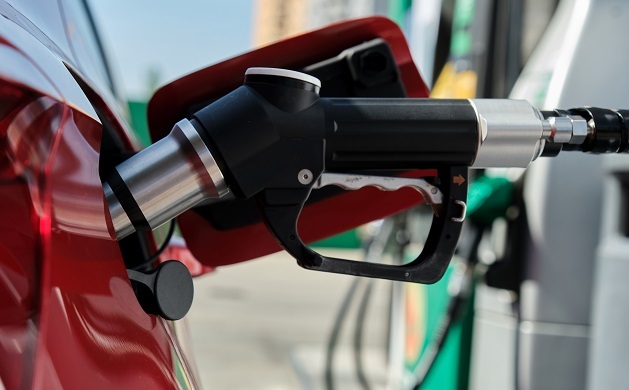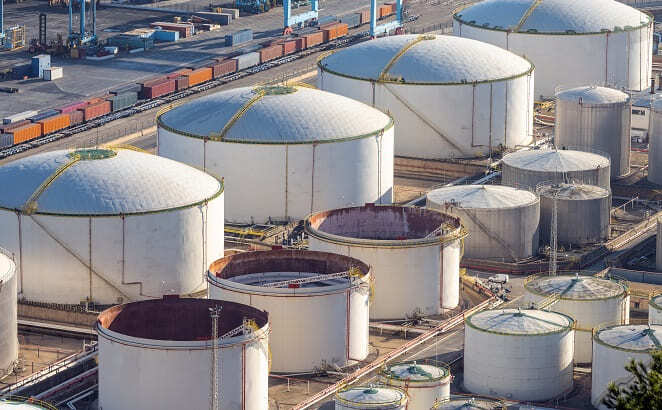
 Data Structure
Data Structure Networking
Networking RDBMS
RDBMS Operating System
Operating System Java
Java MS Excel
MS Excel iOS
iOS HTML
HTML CSS
CSS Android
Android Python
Python C Programming
C Programming C++
C++ C#
C# MongoDB
MongoDB MySQL
MySQL Javascript
Javascript PHP
PHP
- Selected Reading
- UPSC IAS Exams Notes
- Developer's Best Practices
- Questions and Answers
- Effective Resume Writing
- HR Interview Questions
- Computer Glossary
- Who is Who
What is the full form of CNG?
Definition of CNG
Compressed Natural Gas (CNG) is a fuel that is made by compressing natural gas to a pressure of about 3600 pounds per square inch or higher, which makes it easier to store and transport.

It is primarily composed of methane gas and is extracted from natural gas reserves often found in underground rock formations.
Extraction and Production of CNG
Compressed Natural Gas (CNG) is extracted from underground reservoirs often found in rock formations, using a process called drilling. The process involves drilling a well into the earth's surface to reach the natural gas reservoir, and then using specialised equipment to extract the gas from the reservoir.
Once it is extracted, it is transported through pipelines or by truck to a processing facility where impurities like water, CO2, and other gases are removed. Further, it is compressed at a pressure of 3600 pounds per square inch or higher for easy transport and storage.
Another way to produce CNG is via biogas upgrading which involves capturing methane gas that is produced from organic waste materials like food waste, agricultural waste or wastewater. The biogas is then purified and compressed to produce CNG.
Advantages and Disadvantages of CNG as Fuel
Some of the advantages of CNG includes
Reduced emissions CNG produces lower levels of harmful emissions like CO2, CO, NOx , compared to fossil fuels.
Cost effective It is less expensive than fossil fuels.
Abundance of Reservoirs The gas reserves are abundant in many countries and can be produced domestically.
Improved Engine Performance It burns more cleanly than traditional fossil fuels and vehicles run on CNG experience longer lifespan and less wear and tear.
Reduced noise pollution CNG engines produce less noise than traditional fossil fuel engines.
Despite the advantages, it has several setbacks including
Limited Infrastructure CNG as fuel source is a limited infrastructure compared to the fossil fuels which are mostly found at most gas stations.
Range limitations CNG vehicles have limited driving range compared to traditional gasoline and diesel vehicles.
Methane emissions CNG produces fewer emissions than traditional fossil fuels, it is still a greenhouse gas.
Safety concerns CNG is stored at high pressures, which can pose safety risks if the fuel tank is damaged or ruptured in an accident.
Usage of CNG in Transportation and Industries
Compressed natural gas (CNG) can be used in a variety of applications, including
Transportation CNG is commonly used as a fuel for vehicles, especially in commercial applications such as buses, taxis, and delivery trucks. CNG vehicles are often more cost-effective and produce fewer emissions than traditional gasoline and diesel vehicles.

Industrial applications CNG can be used in industrial processes such as heating, power generation, and as a feedstock for chemical production.
Residential and commercial heating CNG can be used as a fuel for heating homes and commercial buildings, especially in areas where natural gas is readily available.
Backup power generation CNG can be used as a backup fuel source for generators in emergency situations, providing a reliable source of electricity when traditional power sources are disrupted.
Overall, the usage of CNG is versatile and can provide a clean, sustainable, and cost- effective alternative to traditional fossil fuels in a variety of applications.
FAQs
What is Compressed Natural Gas (CNG)?
Ans: Compressed Natural Gas, commonly abbreviated as CNG, is a type of fuel that is made from natural gas by pressuring it over 3600 pounds per square inch or higher. The natural gas reservoirs are mostly found in the underground rock formations from which it is extracted via complex techniques and further compressed at high pressure to produce CNG.
CNG is an odourless gas but the cooking gas has a strong odour. Why?
Ans: In its natural state, CNG is an odourless and colourless gas. However, for safety reasons, a strong-smelling odorant called Mercaptan is added to it before its distribution. This is to ensure any leaks in gas lines so as to prevent any harmful explosions.
Why is CNG a better option than fossil fuels?
Ans: CNG produces less harmful emissions (CO2, CO, particulate matter and other pollutants) compared to gasoline or diesel. It is less expensive than both and is abundant around the world. It is safer than fossil fuels since it has a higher ignition temperature making it less flammable.

